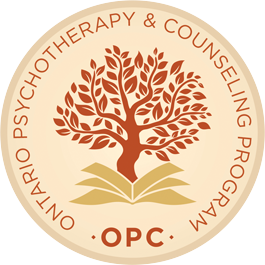National Day of Truth and Reconciliation 2023
Saturday, September 30th, 2023
The National Day for Truth and Reconciliation can have profound implications for therapy and mental health, both for individuals and communities. As therapists there are a few ways that we can understand the intersection of therapy on this important day to create opportunities for further growth. Some of these are:
Validation and recognition: Therapists can help clients, particularly those from Indigenous or marginalized communities, process their feelings about the National Day for Truth and Reconciliation. Validating their experiences, acknowledging the historical trauma, and recognizing the significance of this day can be an essential part of the healing process.
Working with and healing and trauma: This day can serve as an opportunity for individuals to address intergenerational trauma and its impact on their mental health. Therapists can assist clients in exploring how historical events, like the residential school system in Canada, have affected their families and their own psychological well-being.
Deepening cultural sensitivity: Therapists need to be culturally sensitive and aware of the unique needs and perspectives of their clients, especially Indigenous clients. Understanding the cultural significance of this day and exploring whether the incorporation of traditional healing practices or rituals could be helpful in the healing journey and, if so, assisting indigenous clients to bring it into the therapy room or to connect them with community members or elders who can guide them may be an important aspect to the clinical journey.
Supporting community healing: Therapy can extend beyond the individual to the community level. Group therapy or support groups can provide a safe space for people to come together and share their experiences and feelings related to this day. Community healing can be a powerful aspect of reconciliation.
Awareness of self-care: The emotions stirred up by discussions around truth and reconciliation can be overwhelming. Therapists can help clients develop self-care strategies to manage these emotions and prevent burnout or secondary trauma. Therapists themselves can also practice and model self-care strategies.
Resilience and Empowerment: Therapy can focus on building resilience and empowerment. Clients can explore how they can contribute to the reconciliation process, whether through advocacy, education, or supporting their communities in the ways that are important to them.
Dialogue and Communication: Encouraging open and respectful dialogue can be therapeutic. Therapists can help clients improve their communication skills, which can be particularly useful in conversations about difficult topics like reconciliation.
Further Education: Taking training and workshops offered by Indigenous sources can help therapists to deepen their knowledge of loss, grief, intergenerational trauma and other aspects of truth andreconciliation.
Long-Term Support: Recognize that the process of truth and reconciliation is ongoing. Therapy can provide long-term support for clients as they continue to navigate the emotional and psychological aspects of this journey.
In summary, National Day for Truth and Reconciliation provides an important opportunity for therapy to address historical trauma, promote healing, and support individuals and communities in their journey toward reconciliation. Therapists can play a vital role in this process by providing a safe and culturally sensitive space for their clients to explore their thoughts and feelings related to this day.
As therapists and therapists in training, we encourage each person to pause and reflect on Saturday how they may remember, honour and work towards healing/reconciliation in their own community and social circle.
We encourage you to explore this link and learn more about Truth and Reconciliation:
https://www.canada.ca/en/canadian-heritage/campaigns/national-day-truth-reconciliation.html https://culturedays.ca/en/resources/truth-and-reconciliation
A. McGrath,
CEO and Educational Director OPC Program.

